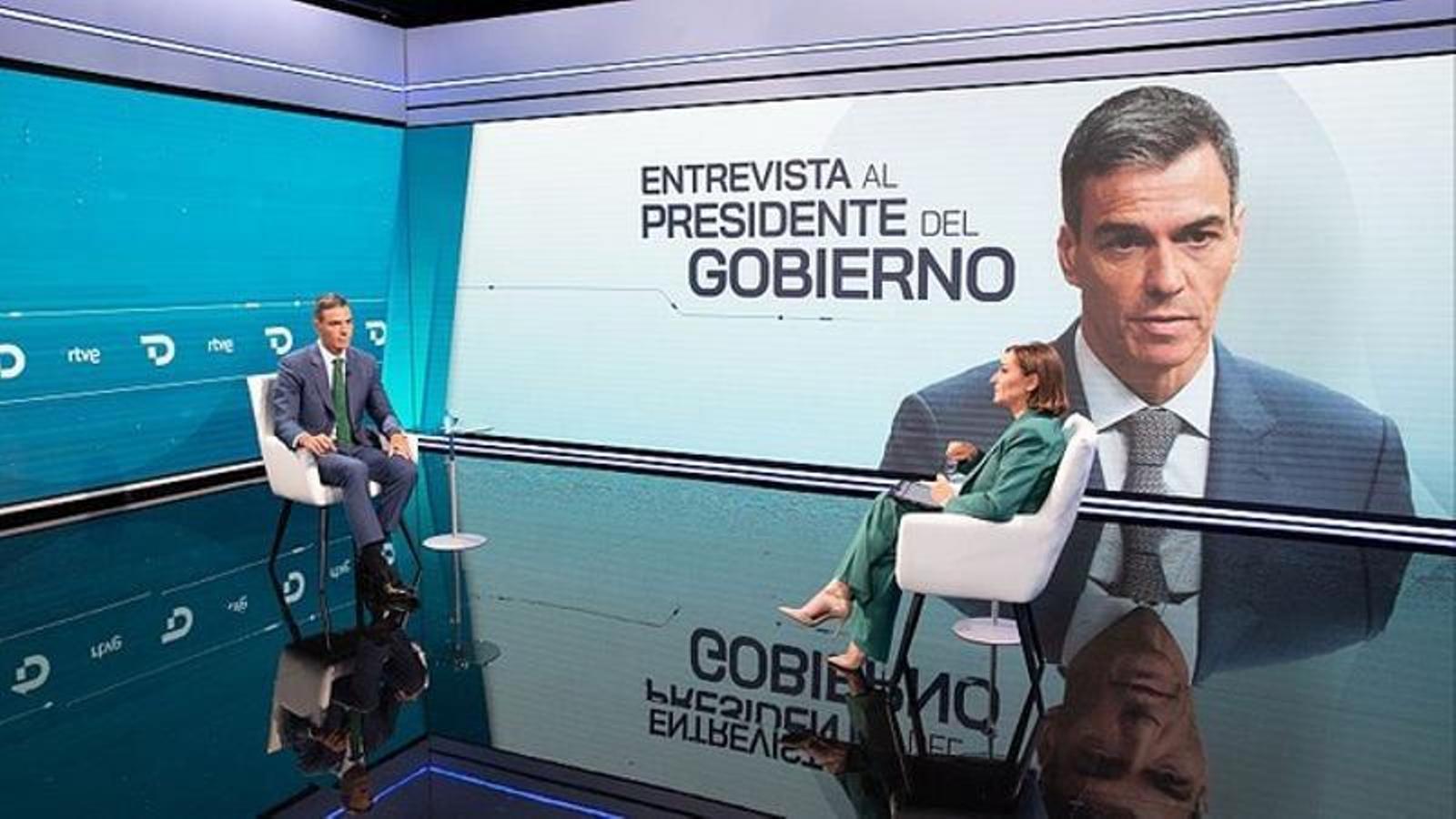

On Monday night, La 1 started the season with the interview with Pedro Sánchez after the Newscast 2. The broadcast also marked the return of journalist Pepa Bueno to public television to host the newscast. Her debut was splendid.
Pepa Bueno didn't resort to a rehash of predictable topics based on the current agenda. The journalist confronted Pedro Sánchez with his contradictions with questions that connected to the most immediate reality of his term, especially regarding aspects related to corruption. The way she phrased the questions forced Sánchez to think and improvise arguments, which is where the solidity of the discourse can best be seen. It wasn't a matter of reviewing a list of citizen concerns and hot topics. Bueno captured these priorities, forcing Sánchez to take a more explicit position. "Does the continuity of your government depend more on the courts than on your governing actions?" asks a straightforward answer that is difficult to escape. "Are there judges who are at war with the government?" is the perfect question for extracting a good headline. "Are you in a position to affirm that there is no structural corruption in your party?" It's a question that compromises the interviewee's immediate future. "Of course not," Sánchez replied. And Bueno jumped in: "Isn't he up to it?" "No, no. I mean, there isn't one!" Sánchez clarified. Regarding the case affecting the Attorney General of the State, García Ortiz, the journalist asked: "President, I would like to know why you believe it is acceptable, at that time and in this case, that an Attorney General of the State, who is the guarantor of legality in Spain, can carry out his function while sitting in the immediate dock, something that can happen in time?" When asked about housing and citizens' salaries, the journalist asked: "Why has a clearly left-wing government like yours, which has known how to grow the economy, not been able to put an end to these two problems that affect so many people?"
Bueno maintained a firm but calm tone. She seemed deeply focused and never smiled. She steered the interview towards an unusual conversational tone. She introduced the context very naturally, asked direct and clear questions, and knew how to pause Sánchez's speech to ask him questions or confront him elegantly, without displaying interruption. The script was fluid and evolved coherently. She placed the Prime Minister on the spot without ostentation, leaving the audience the opportunity to draw conclusions. Pepa Bueno's interview can not only be useful for communication faculties to analyze a magnificent and current example of good journalism. It should be a reference for many journalists who are allowing themselves to be dragged down by thematic inertia when facing these types of challenges.
